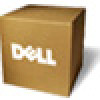Dell PowerConnect W-Airwave W-Airwave 7.2 User Guide - Page 189
Overview of the Users s, Monitoring WLAN Users with the Users > Connected and Users > All s
 |
View all Dell PowerConnect W-Airwave manuals
Add to My Manuals
Save this manual to your list of manuals |
Page 189 highlights
If you need to create an AWMS user account for frontline personnel who are to support Guest WLAN users, refer to "Supporting Guest WLAN Users With the Users > Guest Users Page" on page 191. Overview of the Users Pages The Users pages display multiple types of user data for existing WLAN users. The data comes from a number of locations, including data tables on the access points, information from RADIUS accounting servers, and AWMSgenerated data. AWMS supports the following Users pages: Users > Connected-Displays active users that are currently connected to the WLAN. Refer to "Monitoring WLAN Users with the Users > Connected and Users > All Pages" on page 189. Users > All-Displays all users of which AWMS is aware, with related information. Non-active users are listed in gray text. For a description of the information supported on this page, refer to "Monitoring WLAN Users with the Users > Connected and Users > All Pages" on page 189. Users > Guest Users-Displays all guest users in AWMS and allows you to create, edit, or delete guest users. See "Supporting Guest WLAN Users With the Users > Guest Users Page" on page 191. Users > User Detail-Displays client device information, alerts, signal quality, bandwidth, and association history. This page appears when you select a user's MAC address from: Users > Connected Users > All Home > Search page results or Search field results that display the user MAC address See "Evaluating and Diagnosing User Status and Issues" on page 194. Users > Diagnostics-Displays possible client device issues, diagnostic summary data, user counts, AP information, 802.11 counters summary, and additional information. This page appears when you select a user's MAC address from one of the following pages: Users > Connected Users > All Home > Search page results or Search field results that display the user MAC address See "Evaluating and Diagnosing User Status and Issues" on page 194. Users > Tags-Displays a list of wireless tags, such as Aeroscout, PanGo and Newbury, that are heard by thin APs, and reported back to a controller that is monitored by AWMS. "Supporting RFID Tags With the Users > Tags Page" on page 193. Monitoring WLAN Users with the Users > Connected and Users > All Pages The Users > Connected page displays all users currently connected in AWMS, and is illustrated in Figure 130 and described in Table 112. The information on this page can be adjusted in the following ways: Drag the slider to pick the time range on the interactive graphs, and select Show All to select other options to display. The Alerts section displays custom configured alerts that were defined in the System > Alerts page. In more recent versions of AWMS, the Users > Connected page includes SSID information for users, and can display wired users using remote Access Point (RAP) devices in tunnel and split-tunnel mode. Dell PowerConnect W AirWave 7.2 | User Guide Performing Daily Administration in AWMS | 189















